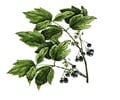A doctor played Sherlock Holmes to the hilt when he discovered a link between young boys with breasts and the products they were using.
A doctor played Sherlock Holmes to the hilt when he discovered a link between young boys with breasts and the products they were using, and in turn provided material for research to scientists.
Dr. Clifford Bloch, a pediatric endocrinologist at the University of Colorado was offered a clue by a patient’s mother when she brought a her 4 year old son to get him examined for breast enlargement or gynecomastia. The doctor made a note of the fact that she was using a homeopathic balm on the boy’s chest that contained lavender oil.While seeing two other young boys aged 10 and 7, Bloch was quick to spot the similarity; they all used soaps, shampoos, lotions or hair gels that contained lavender as well as tea tree oil.
Further investigations using human breast cells exposed to compounds derived from lavender and tea tree oil were carried out at the National Institute of Environmental Health Sciences.
Lead author Derek Henley published results in The New England Journal of Medicine.
The study confirmed doubts; lavender oil and tea tree oil based compounds did bring out enlargement of breast tissues.
In addition other tests were carried out to see whether those oils mimicked the effects of the female hormone estrogen, which stimulates breast tissue growth, or blocked the activity of the male hormone androgen, which inhibits growth of breast tissue.
Advertisement
Says Kenneth Korach, chief of laboratory reproductive and developmental toxicology at the National Institute of Environmental Health Sciences “This combinatorial activity makes them somewhat unique as endocrine [hormone] disrupters.”
Advertisement
States Henley “We conclude that repeated topical exposure to lavender and tea tree oils probably caused prepubertal gynecomastia in these boys."
The researchers voice their concerns in their publication that lavender and tea tree oils are sold in their pure form over the counter and present in many products. They encourage doctors looking into cases of prepubertal gynecomastia to explore a possible usage of such products.
Source-Medindia
ANN











